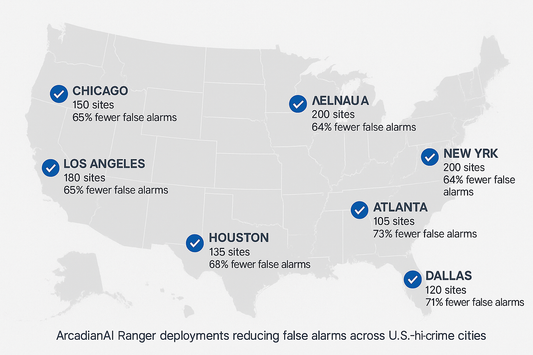Hong Kong Plans 7,000 SmartView CCTV Cameras with Facial Recognition, Raising Privacy Debate
The SmartView network builds on an initial deployment of 612 cameras installed by December of last year. At that time, police reported the system had contributed to solving 97 criminal cases, including serious offenses like murder and assault. As of mid-2025, authorities now cite more than 300 cases solved and nearly 600 arrests linked to CCTV footage. The new expansion plans call for adding approximately 2,000 to 2,500 cameras each year through 2027, with 1,385 additional units budgeted specifically for 2025.

Story
Hong Kong authorities have announced plans to expand their citywide CCTV network under the SmartView program, aiming for as many as 7,000 surveillance cameras by 2027. Secretary for Security Chris Tang described the initiative as part of broader efforts to strengthen public safety and enhance crime prevention measures across the city.
SmartView Rollout and Facial Recognition Plans
The SmartView network builds on an initial deployment of 612 cameras installed by December of last year. At that time, police reported the system had contributed to solving 97 criminal cases, including serious offenses like murder and assault. As of mid-2025, authorities now cite more than 300 cases solved and nearly 600 arrests linked to CCTV footage. The new expansion plans call for adding approximately 2,000 to 2,500 cameras each year through 2027, with 1,385 additional units budgeted specifically for 2025.
Although Hong Kong’s existing cameras currently function as traditional video recorders, the next phases of SmartView are slated to integrate artificial intelligence and real-time facial recognition capabilities. Tang emphasized that any use of facial recognition technology would comply with the city’s privacy regulations and require necessary approvals from the Office of the Privacy Commissioner for Personal Data. “The installation of CCTV cameras is an effective measure to prevent and detect crime, and to enhance the overall security of Hong Kong,” Tang said in recent remarks, while acknowledging public concerns around privacy.
The planned facial recognition rollout remains under development, pending privacy impact assessments and software implementation. As of now, the vast majority of the existing CCTV network does not operate with live facial recognition. However, Hong Kong has already deployed facial recognition systems in specific contexts, such as document-free border crossings at Hong Kong and Macau ports and pilot programs for restricted tourist zones like Chung Ying Street near the Sha Tau Kok checkpoint.
Privacy Concerns and Global Comparisons
The SmartView architecture is designed to eventually aggregate video feeds from multiple sources, including cameras operated by the Housing Department, Transport Department, and the city’s MTR rail network. This could add as many as 20,000 additional cameras to the centralized monitoring console, significantly increasing surveillance coverage across public spaces.
Police have stated that CCTV footage is retained for a maximum of 30 days unless linked to an ongoing investigation, with inspector-level approval required for facial recognition searches. Despite these assurances, privacy advocates and civil-liberties groups have raised concerns that the growing surveillance infrastructure could chill free expression and public assembly. Some critics draw parallels to surveillance practices in mainland China and have called for a dedicated legal framework to govern the deployment and use of live facial recognition technologies in Hong Kong.
Other major cities are exploring similar surveillance expansions. In London, live facial recognition systems have resulted in more than 500 arrests since 2020, although debates continue about the balance between security and privacy.
Source: Link

Security is like insurance—until you need it, you don’t think about it.
But when something goes wrong? Break-ins, theft, liability claims—suddenly, it’s all you think about.
ArcadianAI upgrades your security to the AI era—no new hardware, no sky-high costs, just smart protection that works.
→ Stop security incidents before they happen
→ Cut security costs without cutting corners
→ Run your business without the worry
Because the best security isn’t reactive—it’s proactive.






